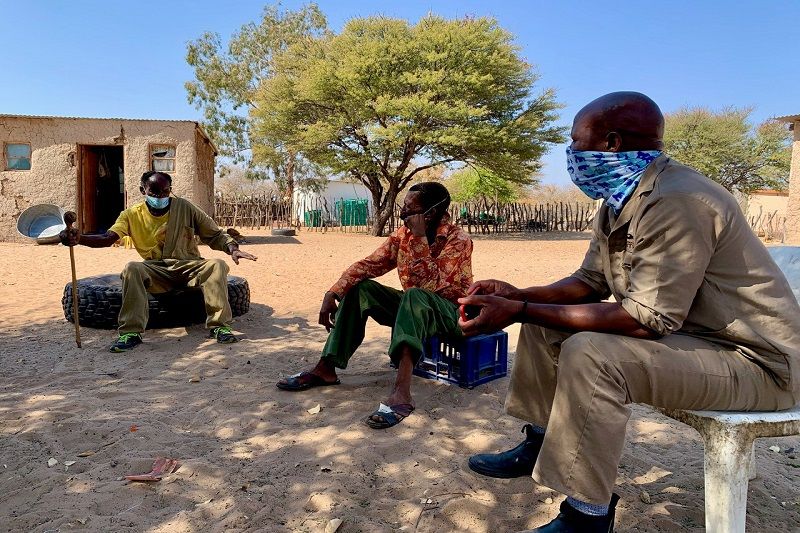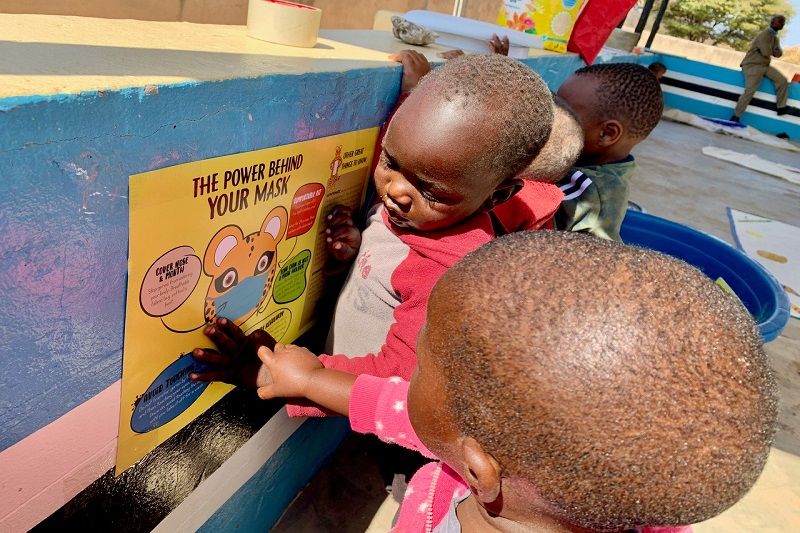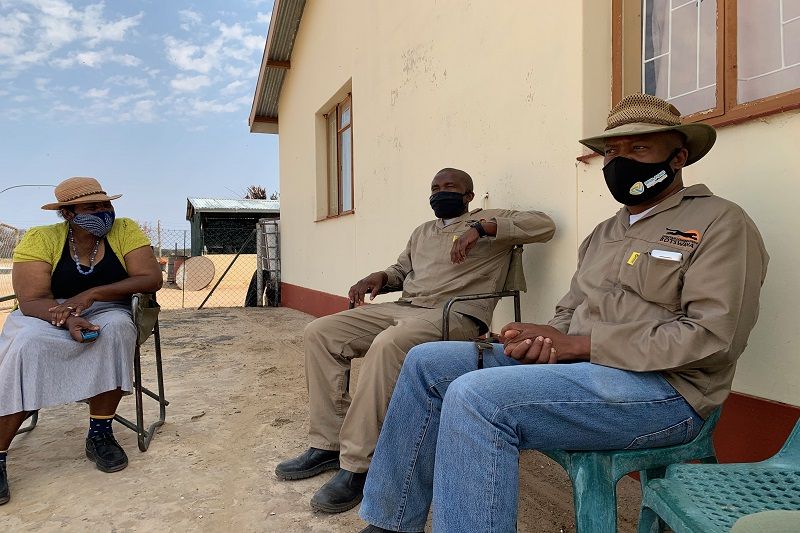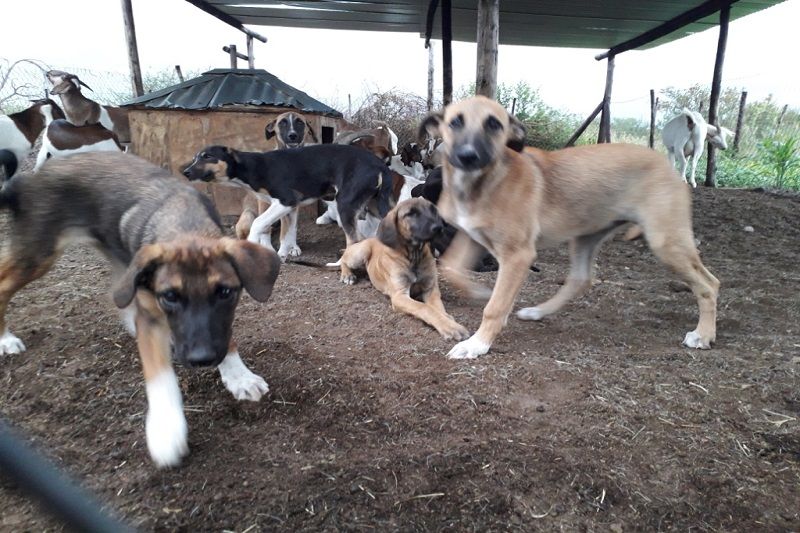As last year drew to a close we received a lovely message from Rebecca Klein of Cheetah Conservation Botswana (CCB). With your kind support, we’ve been helping Rebecca build a brighter future for cheetahs. Thankfully there have been relatively low COVID-19 infection rates in Botswana. Despite the government restricting movement, Rebecca and her team were back in the field from June, continuing with their important community and conservation activities.
Keeping livestock safe
Like all big cats, cheetahs can pose a problem for farmers with livestock, as there’s a risk of losing their sheep, goats or cattle to predation. Luckily Rebecca is using a now well-tried and tested method: livestock-guarding dogs. Young local “Tswana” puppies are placed in a livestock herd and grow up to be determined to protect cattle at all costs. A strong, loud, livestock-guarding dog in amongst goats or sheep is normally sufficient to deter any large carnivores attempting to attack. CCB’s Farming for Conservation team has been determined to provide as many guarding dogs as possible.
Until now, the team has trained puppies at their own farm. Now they have three other ‘model farmers’ in the community who have the skills to train the dogs at their own demonstration farms. That means many more puppies are available for farmers desperate to protect their livestock. The strength of this approach is that it also demonstrates to farmers in the area that you don’t have to be a conservation organisation to train effective livestock-guarding dogs! Farmers can do it themselves and this type of peer-to-peer learning is really effective and important in helping to change peoples’ behaviour.
Working with the community
Meanwhile the CCB’s Communities for Conservation team has also been busy working with other members of the community. They’re aiming for an inclusive approach for wildlife monitoring, reducing negative interactions between people and wildlife and developing ways to bring a direct value for people to coexist with wildlife in this incredibly wild place. There are two community trusts in Rebecca’s focal area and CCB staff have been helping them plan for upcoming conservation initiatives. Like our Conservation Partner, Amy Dickman in Tanzania, Rebecca’s team is planning to develop a Conservation Performance Payment approach. Community members will keep an eye out for the different species of wildlife and will receive direct payments for the presence of cheetahs and other threatened species in their area.

Improving livelihoods is also important. The communities will be linked up to reliable markets for the sustainable harvesting of local wilderness products such as Kalahari Devils Claw (an important medicinal herb with anti-inflammatory and analgesic properties) and for the indigenous crafts produced by the San bushmen. By giving local communities new ways of seeing value in their natural resources, more people will be involved in conserving this beautiful wild landscape.
Conservation through learning
Working with children to teach them early about the importance of wildlife is also critical, but CCB’s Education team are unable to go into schools at the moment on account of COVID-19 protocols. However, ever resourceful, CCB held a competition for people to send drawings to illustrate a new children’s book. ‘Xabe, the cheetah hero’ is the story of a young local boy who rescues a cheetah cub from poachers. This conservation-themed storybook is now being printed and will be distributed in every school across the country. Meanwhile, CCB’s community environmentally based preschool, “Learn to Play”, run by local women, provides an environmentally-focused curriculum for young learners in rural communities in key cheetah areas.

Rebecca and her team sent this message to PTES supporters, “Thank you once again for being such an important part of our conservation team for cheetahs and the Kalahari! We look forward to a 2021 full of conservation success and global hope! Keep safe and well and keep smiling.”
Thank you for helping us fund this research to protect cheetahs in Botswana.
If you’d like to support this work, please donate or set up a direct debit here today.
Find out more about our work to protect cheetahs in Botswana:


